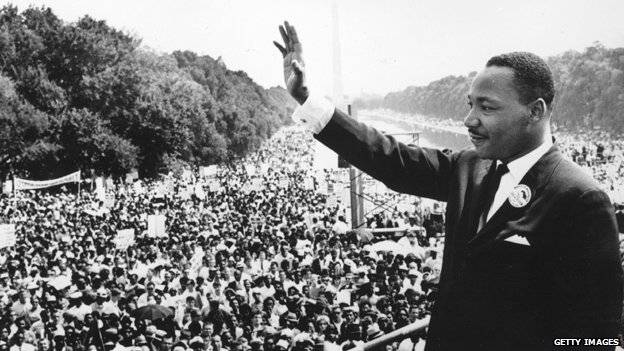"More Than a Dream: What the MLK Files Tell Us About Power, Fear, and the Truth We Bury"
A few years back, I found myself standing in front of the Martin Luther King Jr. memorial in D.C., jetlagged, sipping a weak coffee from a 24-hour diner. I wasn’t expecting to feel much—just another tourist stop, right? But staring up at that towering stone face, arms folded, eyes steady… I felt something. Like the weight of history staring back at me. Heavy. Uncomfortable. Real.
So when I heard that the Trump administration had released classified files on MLK, I got that same feeling in my gut. The what else don’t we know? feeling. The how much of what we’ve been taught was only part of the story? kind of unease.
The files didn’t hold back.
They painted a picture of a man both extraordinary and… human. There were allegations. Surveillance. FBI memos that honestly read more like obsession than national security concerns. It wasn’t just about monitoring a civil rights leader—it felt personal. Almost like they were trying to break him.
And that’s the part that sticks with me.
We’ve polished MLK’s legacy to the point where he sometimes feels more statue than man. Just a “dream” quote in February, a street name, or a church mural. But behind the quotes was a real person. One with fears, flaws, convictions so deep they shook a nation—and a government so scared of him they wiretapped his phones and tried to discredit him every chance they got.
In my opinion, this release says more about us than it does about King.
It shows how power reacts to truth. Especially when that truth is loud, unshakable, and unwilling to compromise.
I mean, imagine being that much of a threat just by speaking. By marching. By daring to dream publicly. Today, we call that bravery. Back then? They called it dangerous. Treasonous, even.
What’s wild is how this mirrors stuff we still see. The surveillance. The smear campaigns. The attempts to rewrite history while people are still living it. We've just changed the tools—it's not grainy files and hidden tapes anymore, it's online disinformation and quiet blacklists.
I’ve noticed that whenever someone shakes the system too hard, the system tries to shake them right back. Sometimes with force. Sometimes with silence. And sometimes, like this, with delayed files—released decades later, after the damage is already done.
So yeah, MLK was imperfect. But who isn’t? His flaws don’t cancel out his message. If anything, they remind us that real leaders aren’t saints—they’re people who keep showing up, even when the world throws everything at them.
Now that these files are out, the question isn’t just what they reveal about King…
But what they reveal about us.
Why do we wait so long to tell the truth?
Why are we so scared of those who dare to speak it?
And most importantly—what truths are we burying now that future generations will have to unearth?




No comments yet
Be the first to share your thoughts!